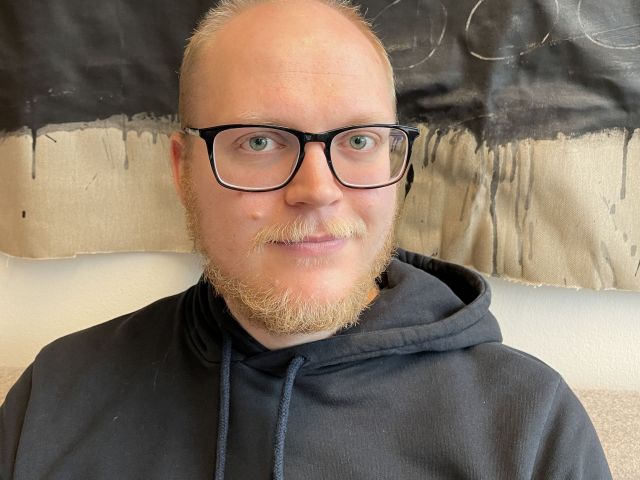Acting CBS President on cases of bullying at CBS: “They are unacceptable and must stop”

“Generally speaking, I believe we have a workplace where people thrive and go to work with huge engagement," says acting President at CBS, Inger Askehave. (Photo by Anne Thora Lykkegaard)
The new job satisfaction survey at CBS shows, among other things, a lack of trust in the Senior Management and problems with harassment and bullying. Acting CBS President Inger Askehave is “sad that these problems exist” and states that she will actively attempt to fight them. Read her views on the results of the report here.
Altogether, 1,288 employees at CBS responded to the 2021 job satisfaction survey, revealing various problems that need to be addressed. These problems include distrust in the methods used by the Senior Management, anxiety about speaking up – also about one’s tasks and workplace, and episodes of bullying and harassment at work.
CBS WIRE has addressed these issues with acting CBS President Inger Askehave, who is very concerned about the cases of bullying and harassment. Yet she underlines that the survey also shows a workplace where employees in general are proud to go to work, are very passionate about their jobs, and express high satisfaction with their jobs.
“Generally speaking, I believe we have a workplace where people thrive and go to work with huge engagement. Many talk of a sense of pride in working at CBS, which is really important for an organization. But, of course, there are aspects that we need to look into,” Inger Askehave says.
One of these aspects is the fact that 59 percent of the 39 respondents state that they have been bullied by a colleague. The number is lower than in the last survey in 2019, but out of the 39 people reporting being bullied since then, 64 percent, 24 persons, claim the problem has not been resolved even though they have spoken up about the incident.
“I find the fact that even one person at CBS has experienced being bullied very dissatisfactory. It is unacceptable. We have to do everything we can to end bullying. It is extremely important for managers at all levels of CBS to deal with these cases and we must be very clear about where employees should go if they experience this kind of unacceptable behavior. If you are being bullied, you should go to your immediate manager or another superior,” Inger Askehave explains.
Regarding the part of the survey showing that 27 employees, including student assistants, have experienced being harassed by a manager, Inger Askehave states:
“That simply must not happen, and I’m really sad and appalled that it has. If something like this happens, you have to address your manager’s superior and take it from there. That being said, I’m glad that the report shows that most employees have a good relationship with their immediate manager.”
Faced with the question of whether CBS has a culture of harassment, Inger Askehave says:
“I don’t believe we have a generally offensive culture at CBS. The survey also demonstrates we don’t.”
Lack of trust and fear of speaking up
Another result in the 2021 survey is that not all employees have overwhelming trust in the Senior Management. The score concerning whether employees trust that the Senior Management leads CBS in the best manner possible averages 3.3 out of 5.
“I would have liked this score to be higher. Still, we must investigate what underlies this score – does the partial lack of trust reflect that people believe that we make bad decisions or that they simply disagree with our priorities and dispositions, or is something else causing the score to be average?” Inger Askehave says.
Besides the 3.3 out of 5 trust in the CBS Senior Management, not all employees feel they can speak up. According to the survey, the total average score of the organization is 3.6 out of 5 on the statement: “I feel able to speak up and give my view/suggestions on the way things are done at CBS.”
“In general, I experience an open dialogue across the organization, and the management is listening to criticism and feedback. But of course, the academic environment can be very critical. We have to make sure that people address each other in a respectful and polite tone in the organization and support our employees out in public when needed. For example, the tone of voice on social media can be harsh. We must be able to speak our minds freely. If people are afraid to do so, we have a challenge in relation to the part of the CBS strategy that is about being curious, bold, and not scared to fail. I’m glad that the survey shows that employees in general are not afraid to speak up, but we can do even better,” Inger Askehave says.
She highlights new initiatives by HSU focusing on psychological safety and preventing harassment in combination with a new wellbeing committee as examples of ways to improve the situation for the employees that give this part of the survey a low rating.
Not enough information
There also appears to be a gap between employees’ desire to be informed about changes in their workplace and the level of information provided by the management of CBS.
Only 54 percent of the respondents in the survey feel they receive adequate information about changes that could directly influence their daily jobs. That means almost 46 percent of the respondents are either neutral, disagree or completely disagree with the statement that the level of information is satisfactory.
On this point of criticism, Inger Askehave says:
“I believe we are doing what we can to inform staff about actions that affect CBS and their work. CBS is a large organization and the risk of not being properly informed is ever present. Together with the department of Executive Support and Communications, we do, however, often discuss how we can make employees feel more up to speed with the broader lines of where CBS is headed. That is also why we have revived our newsletters with links to additional info on CBS Share.”
Lastly, CBS WIRE addressed the part of the survey that shows that not everyone is happy about the follow-up on the previous job satisfaction survey from 2019. Fourteen percent of the respondents disagreed or strongly disagreed with the statement: “In my unit we had good follow-up on the employee satisfaction survey in 2019.” Also a total of 20 percent of the respondents disagreed or strongly disagreed with the statement: “I have experienced good follow up in our organization.”
“Following up on the well-being survey is a management task, and we expect local managers to do that. At institutional level, we are already working intensely on the questions and concerns raised in the survey. If there are problems, they must be addressed and worked through. We will make sure that every unit follows up on the issues and that they know who to approach in order to get the help they might need to resolve the problems,” Inger Askehave concludes.






































































































































The constant bullying of students from the CBS management led by Nikolaj Malchow-Møller and continued by Inger Askehave also needs to stop. Please treat us as the adults that we are and not consider us as immature teens that don’t know what is best for ourselves. Thank you.